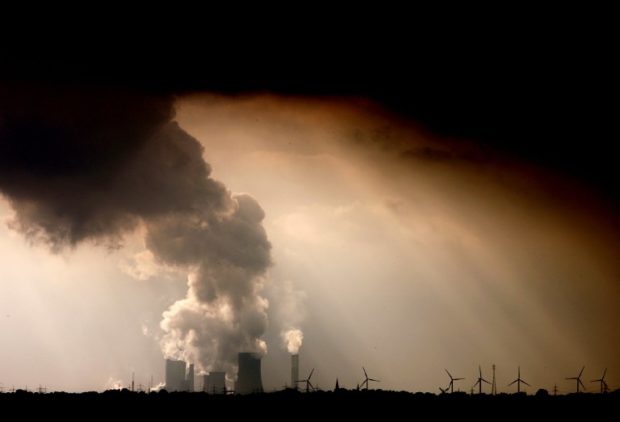Fossil fuel companies mar integrity of climate talks – int’l transparency group
Under the guise of the “we’re all in it together” message, transnational companies whose profits and existence depend on the pollution of fossil fuels have been allowed by the United Nations Framework Convention for Climate Change (UNFCCC) to join the high-level climate talks at COP 23—a stark irony to the goals of the conference.
In a report released by think tank Corporate Accountability International said that the UNFCCC has been allowing trade organizations with links to transnational coal and gas companies to join and influence the climate negotiations.
‘Time to lobby is now’
“If there is a time to lobby for big corporations, it is now,” Yeb Saño, executive director of Greenpeace Philippines said.
World leaders are engaged in a 12-day climate conference in Bonn, Germany to discuss the creation of a road map for the implementation of the Paris Agreement, a landmark climate treaty that seeks to limit the rise of global temperatures well below 2˚C by dramatically reducing greenhouse gas emissions.
Article continues after this advertisementThe rulebook shall determine how countries will conduct businesses and industrialization with respect to the goals of the Paris Agreement.
Article continues after this advertisementUS Scientists: Two-thirds of global emissions from 90 corporations
In September, a study published in the scientific journal Climatic Change has found that major carbon-emitting companies are responsible for two-thirds of global greenhouse gas emissions. The study specifically linked the emissions of US gas companies such as Exxon Mobil and Chevron to global warming.
Exxon Mobil has been giving millions of dollars to trade organization US Chamber of Commerce, the CAI report said.
The US Chamber of Commerce spearheaded the Business and Industry day at COP 23 last November 9 with a message of “ramping up ambitions” by transitioning to a “low carbon economy.”
The “low carbon economy” model has been criticized by various environmental groups for deflecting the issue of phasing out fossil fuels in favor of renewable energy sources, a critical facet of lowering carbon emissions.
PH petition against big polluters
In the Philippines, Supertyphoon “Yolanda” survivors, community members and environmental groups have filed a petition to the Commission of Human Rights to investigate the corporate responsibility of fossil fuel companies such as Exxon Mobil, Shell, Total and Chevron in worsening the effects of climate change.
The group said that companies that have direct investments in fossil fuels such as coal and gas have contributed to the deadly impacts of climate change, such as the deaths and massive property damage caused by Yolanda in 2013.
The first meeting between representatives of the corporations and petitioners has been set for December 11.
Include conflict of interest policy in negotiations—CAI
The CAI report has recommended the UNFCCC to uphold a conflict of interest policy to ban the intrusion of corporate influence in the climate talks, in the same way the World Health Organization created a similar policy to push against tobacco interests in its discussions on tobacco control.
Developing nations began talks of including a conflict of interest clause in the 2016 Morocco conference but was stopped by the US, EU and Australia. The countries argued the need for “inclusivity” and the difficulty in defining “conflict of interest” in light of the climate negotiations.
